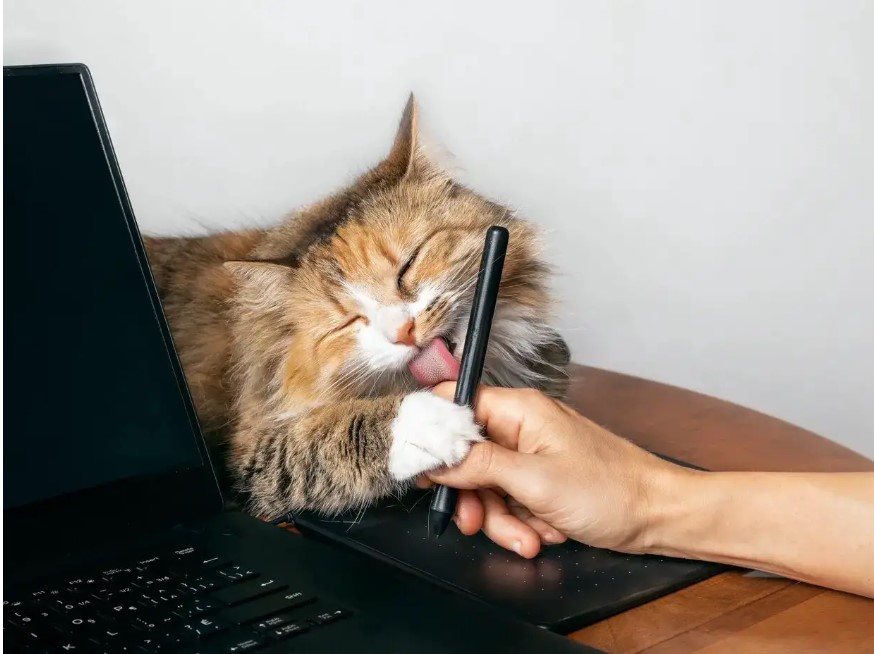Have you ever wondered why cats sometimes lick you and then proceed to bite? It’s an intriguing behavior that may seem puzzling. Is your cat trying to communicate something to you? Is it a sign of anger or just playful antics?
My own cat, Princess Amazing, is a frequent practitioner of this habit. Every night when I climb into bed, she jumps up, meows, and circles around until I start petting her. She purrs contentedly, her eyes half-closed, and eventually settles down. But if I stop petting her, she’ll swiftly bite, hiss, and glare at me as if I’ve committed an unforgivable offense before leaving. It’s clear she’s signaling that she’s had enough.
Before diving into theories about why cats exhibit this behavior, it’s essential to recognize common signs that your cat may not be in a good mood:
1. Ears: Watch the position of your cat’s ears; if they’re flat or pointed backward, your cat may not be feeling content.
2. Pupil Size: Check the size of your cat’s pupils; dilated (large) pupils can indicate stress.
3. Tail and Fur: A downcast tail, a curled tail beneath them, or fur standing on end are signals to avoid engaging with your cat. If your cat is swiftly swishing its tail back and forth, it’s likely not in a good mood.
If you observe any of these signs, it’s crucial to give your cat space rather than punishing or yelling at them. Don’t take it personally unless you’ve genuinely done something to upset your feline friend.
Now, let’s explore some theories about why cats lick and then bite:
Theory 1: Communication: One theory suggests that cats use this behavior as a form of communication. Licking can signify affection (“I love you”), while biting may be a warning (“Don’t get too close, or I might bite!”). Essentially, it’s your cat’s way of saying, “I like you, but don’t push your luck.”
Theory 2: Play: Another theory posits that this behavior is a form of play. Cats are natural hunters, and licking and biting might mimic hunting behavior or be a playful interaction. However, it’s crucial not to use your hand as a plaything, as it can encourage them to attack hands.
Theory 3: Overstimulation: Some cats may lick and bite when they’re overstimulated, often due to excessive petting or anxiety. If your cat displays this behavior more frequently, it’s wise to give them some space.
Theory 4: Grooming: Cats are meticulous groomers, and they may lick and bite as a way of grooming you. They often groom other cats and can extend this behavior to humans.
Cats are complex creatures, and their behavior can be challenging to decipher. If your cat exhibits this behavior and you’re concerned, closely observe them and consult with a veterinarian if needed. It could be a sign of an underlying medical condition, anxiety, or stress.
Does your cat lick and then bite you? Share your experiences in the comments!



